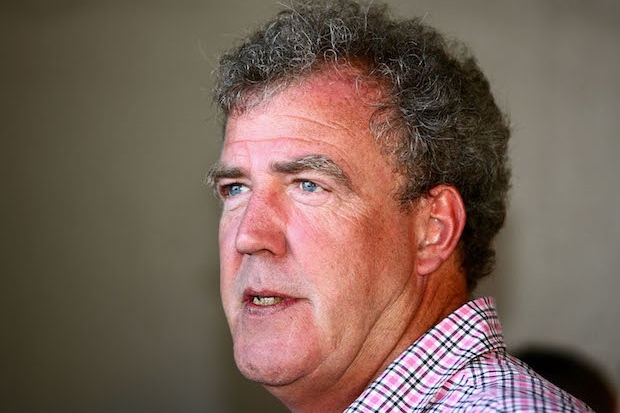To the extent I have ever thought about him, I have always viewed Jeremy Clarkson as a slight irritant. This is largely because he personifies what a type of lazy leftist believes right-wingers to be like (uninterested in culture, cultivatedly thick, casually racist). But this weekend we learnt what some of us had long-suspected: that rather than being a scourge of our dishonest, molly-coddled, excuse-ridden culture, Clarkson may be one of its happiest and most comfortable creatures.
Saturday’s Times carried a long interview with him. It is worth reading not because of Clarkson, but because of what it says about our culture. Because if you fell for the idea of Clarkson as a scourge of political-correctness and leftist groupthink, then one thing you would not expect him to do would be to seek for excuses and self-pitying explanations for bad behaviour. Punching someone in the face and using a racial epithet because your dinner is not hot (the cause of Clarkson’s separation from the BBC) is by any measure somewhat bad behaviour. But in his Times interview Clarkson comes up with an excuse for it. This boils down to the crucial line: ‘In one year I lost my mother, my house, my job.’
Now the second and third things here (losing a house and job) are at least half-lies. If Clarkson did own just one house and lost that house then I am quite certain he would have had no trouble finding and purchasing another. Certainly he is unlikely to have become homeless in the sense most of us would understand it (which is an implication he seems content to leave us with). It is the same with the claim that he lost his job. The loss of a presenting role on Top Gear does not mean for Clarkson what losing a job means for the rest of the population. Even after leaving the BBC he still kept his many highly-paid columns in the national papers (which helped cause the work-pressure he also cites a causal factor in his bad behaviour). It is worth realising that any of these columns on their own would have brought him an income many times the average wage in Britain. There would also have been the certainty that someone (Amazon as it turned out) would pick up Top Gear in some form. Most people unfortunate enough to lose their jobs have no such comfort.
Then there is the loss of his mother. According to Clarkson, the BBC wouldn’t leave him alone despite his mother dying. But everyone will lose their mother at some point, and for almost everyone it will be at least as traumatic and upsetting as it was for Jeremy Clarkson. Very few people who lose their mother while they are in full-time work will be able to expect anything much from their employers other than initial sympathy and some time off for the funeral. That isn’t because most employers are uncaring but simply because the primary role of most employers cannot be to act as a counselling service. Nor can the work you are employed to do be put off indefinitely whenever personal tragedy occurs. To expect any such thing is to desire a world in which very little would get done, because people would be forever navigating around the possible repercussions of their work-deadlines on other people’s feelings.
Of course there are those who seek to create a culture where feelings do trump practical realities. But that was not meant to be Jeremy Clarkson. Indeed if Clarkson were the person he has built his career on pretending to be then after hitting his producer he would have said, ‘It all got to me. I became too much of a prima donna, and before I knew it the non-delivery of a hot steak done just the way I like it at any time of the day or night appeared a massive issue. I was a right dick. I’m sorry.’ Instead he has reached out and grabbed the emotive tools of the zeitgeist: ‘It wasn’t me – it was the terrible things the world had already done to me’.
Perhaps it proves that ‘Clarkson’ always was an act. Or perhaps it just proves the extraordinary power of the culture he made millions purporting to oppose.







Comments